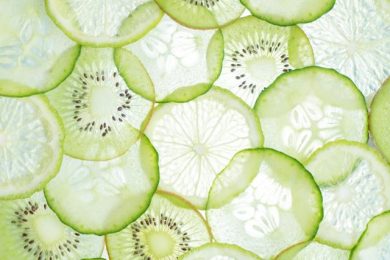- Nourish from Within
- Healthier
Probiotics: Understanding The Composition and Health Benefits

Probiotics have become a buzzword in the world of nutrition and health, and for good reason. These living microorganisms offer a wide array of health benefits when consumed regularly. However, to fully appreciate their significance, it is essential to understand the composition of probiotics and the ways in which they can positively impact our health.
Composition of Probiotics
Probiotics are living bacteria and yeast that provide a host of health benefits when introduced into the body. The most common types of probiotics belong to the Lactobacillus and Bifidobacterium genera. These beneficial microorganisms are naturally present in our gut and play a pivotal role in maintaining a balanced gut microbiome.
Key components of probiotics include:
- Lactic Acid Bacteria: Many probiotic strains are lactic acid-producing bacteria. They convert sugars into lactic acid, creating an acidic environment in the gut that is inhospitable to harmful pathogens.
- Bifidobacteria: These probiotics are essential for maintaining a healthy balance of gut flora. They help digest dietary fiber, produce essential vitamins, and protect against pathogens.
- Yeasts: Saccharomyces boulardii is a common yeast used as a probiotic. It can help combat harmful bacteria and restore gut balance.
- Live Cultures: For probiotics to be effective, they must contain live, viable cultures. These microorganisms need to survive the digestive process and reach the gut alive to confer their benefits.
Health Benefits of Probiotics
- Digestive Health: Probiotics are best known for their positive impact on digestive health. They help maintain a balanced gut microbiome by inhibiting the growth of harmful bacteria and promoting the growth of beneficial ones. This balance is crucial for preventing and alleviating various digestive issues, including irritable bowel syndrome (IBS), diarrhea, and constipation.
- Immune Support: A significant portion of our immune system resides in the gut. Probiotics contribute to a robust immune response by enhancing the gut’s ability to ward off infections and reduce the severity and duration of illnesses. The immune system relies on a harmonious balance within the gut microbiome, where probiotics play a pivotal role. These beneficial bacteria contribute to the defense against pathogens by promoting the production of antimicrobial substances and reinforcing the intestinal barrier. Probiotics also modulate immune cell activity and enhance the body’s ability to recognize and combat harmful invaders. By fostering a diverse and flourishing gut microbiota through probiotic-rich foods or supplements, individuals may fortify their immune defenses, promoting resilience against infections and supporting overall immune health.
- Mental Health: Emerging research suggests that the gut-brain connection, often referred to as the gut-brain axis, can influence mental health and mood. Probiotics may play a role in this connection, potentially reducing symptoms of anxiety and depression by promoting a healthy gut microbiome.
- Antibiotic-Associated Diarrhea: Probiotics can be particularly useful when taking antibiotics, which can disrupt the gut microbiome. By replenishing the gut with beneficial bacteria, probiotics help prevent antibiotic-associated diarrhea and maintain digestive health.
- Management of Inflammatory Conditions: Some studies suggest that specific probiotic strains may help manage inflammatory conditions like inflammatory bowel disease (IBD) and Crohn’s disease. Although more research is needed, probiotics show promise in reducing inflammation and supporting the management of these conditions.
- Weight Management: There are researches into the relationship between the gut microbiome and obesity. Some evidence suggests that certain probiotics may help with weight management and fat loss by influencing metabolism and appetite. Studies showed that a balanced gut microbiome contributes to a healthy metabolism and may aid in weight loss. These microscopic allies regulate appetite, and influence the storage of fat. Additionally, probiotics assist in reducing inflammation, a factor linked to obesity. By cultivating a diverse and thriving community of gut bacteria through probiotic-rich foods or supplement, individuals can potentially support their weight management journey naturally.

Probiotics, with their unique composition of live bacteria, yeasts, and other key components, have gained recognition for their various health benefits. From digestive health and immune support to potential applications in mental well-being and disease management, these tiny microorganisms wield a considerable impact on our overall health. Incorporating probiotic-rich foods or supplements into your daily routine can help you maintain a balanced gut microbiome and experience the numerous health advantages they offer. As research in the field of probiotics and their health benefits continues, we are likely to uncover even more ways to harness the power of these beneficial microorganisms for improved well-being.






